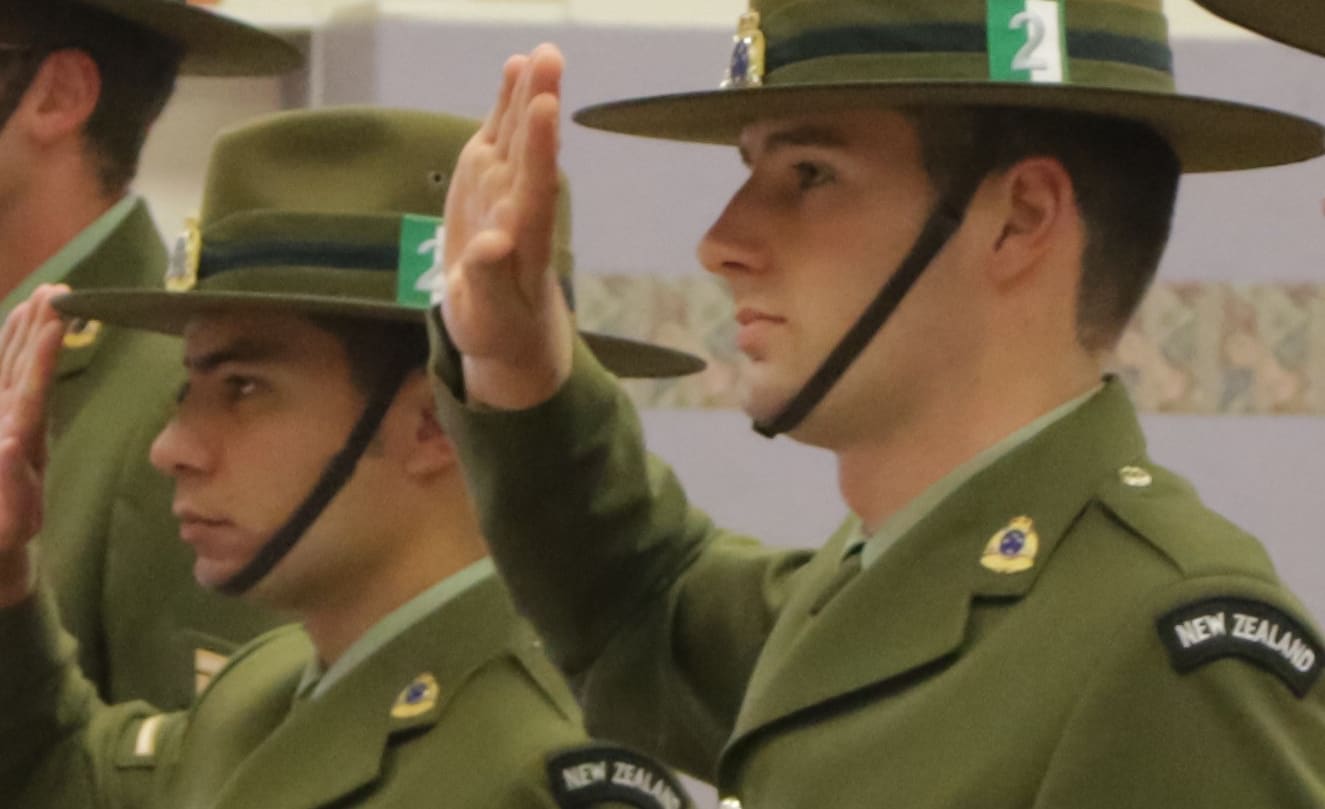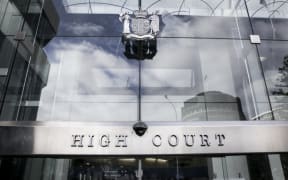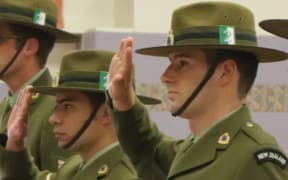Two soldiers found guilty in a court martial of taking psychoactive drug NBOMe while at a Palmerston North bar have had their convictions quashed.

Lance Corporal Joshua Mapson, left, and Private Barclay Bishop. Photo: RNZ / Michael Cropp
Lance Corporal Joshua Mapson and Private Barclay Bishop were sentenced to 14 days detention and fined several hundred dollars at the Linton military camp in May.
The case was taken to a court-martial court of appeal, at which it was argued the drug-testing of other soldiers involved was inadmissible evidence, and a statement from Mr Mapson was improperly obtained.
The soldiers also argued the judge was not balanced when directing the Court Martial.
The pair's lawyer, Michael Bott, told Morning Report the trial was unfair from the start.
"What you see is this remarkable inconsistency with the Defence Force ignoring their own wilful law-breaking or seeking to punish, with the full force of the law, two defendants who may well and did have a proper defence that wasn't fairly put," he said.
In its decision, the court agreed and said it doubted Lance Corporal Mapson's statement was voluntary or reliable because he was in a "compromised physical and mental state at the time".
It said the military police also failed to caution him or tell him about his right to legal advice.
The court also found the drug tests - which were taken from other soldiers also involved - were inadmissible.
The tests were taken as a "work-related incident or accident," which Defence Force guidelines say cannot be used as evidence against a charge.
"Given that it was not a post-incident or accident in which the appellants were involved, there was no authority to take the samples under the post-incident testing orders," the court said.
"If there was no authority to take the samples under the post-incident testing order, there was no lawful basis upon which the ESR tests could be adduced in evidence."
The court also said the judge made imbalanced statements to the Court Martial, and as a result "the defence case was not fairly put or directed upon".
Lance Corporal Mason had his rank reduced during sentencing - a decision also reversed by the court.
A law professor said she was not surprised by the acquittal.
Brenda Midson, from Waikato University, said it was not rare for cases to fall over because of inadmissable evidence.
"For most people in the street, they were clearly guilty, this is what most people think. Everyone has the right to a fair trial. The issue is not whether you are guilty or innocent, it's whether there is enough admissible evidence against you, and a lot of trials do fall over because there simply isn't enough admissible evidence."
The Defence Force said it was reviewing the judgement and would not make any further comment at this time.




